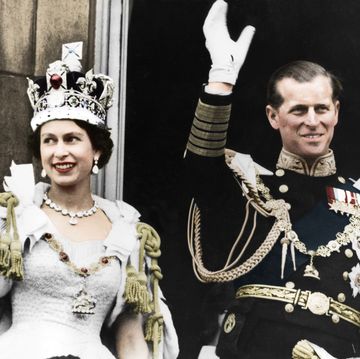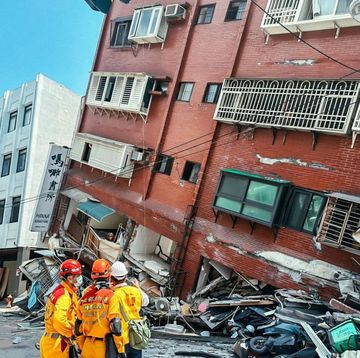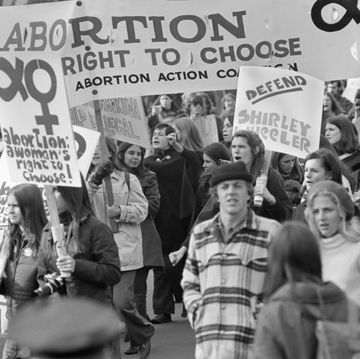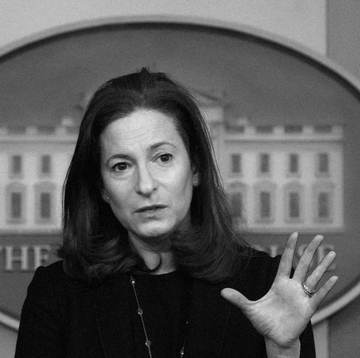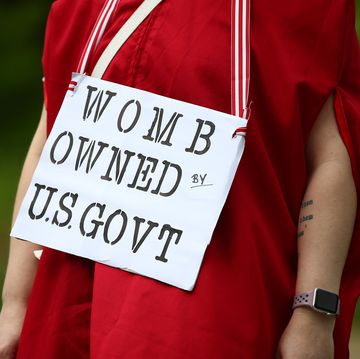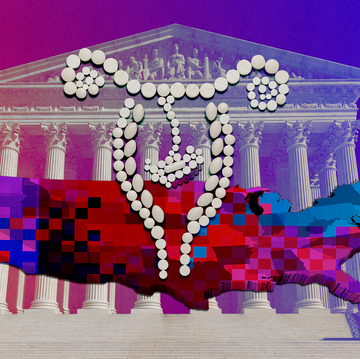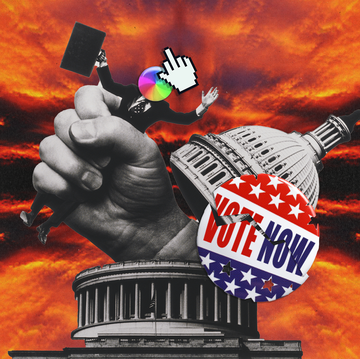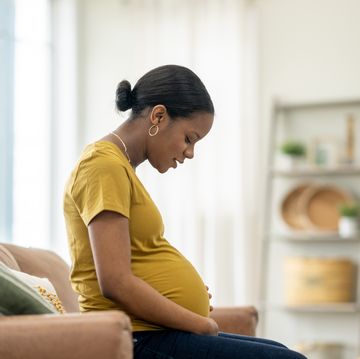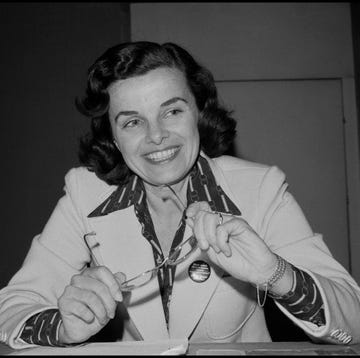Young adult novels are currently one of the hottest genres in publishing, yet if you thumb through the pages, you'll notice that almost none of them discuss abortion. Today's teens are sexually active,with 46 percent of high-schoolers and nearly two-thirds of all high school seniors reporting they have had sexual intercourse, so the lack of fictional material on this topic is hard to overlook. With her debut novel,'89 Walls, author Katie Pierson works to address that gap. She tells Cosmopolitan.com why she added abortion to her story and how her critics have reacted.
What made you decide to make obtaining an abortion such a large part of your young adult novel?
I'm frustrated with how the current political climate has successfully moved abortion onto the sidelines. Conservatives make it seem like it's the marginal, weird thing that bad women do. The reality is that half of women make this choice. It's totally mainstream women's health care. Reproductive health care is women's health care. I see in young adult fiction the same things that I see in our newspapers and in our popular culture — that abortion has been marginalized — and I'm just incredibly frustrated by that.
People — I wouldn't necessarily call them critics — remark on the fact that the main character halfway through the book has an abortion and then after that, just moves on with her life, and that I treat it almost casually. That's a very deliberate way of positioning it for me. She heaves a sigh of relief and she moves on. She becomes stronger and happier after making this hard but self-affirming decision. I just wanted to be one of the voices out there that shows that this is actually quite normal.
Why did you decide to write this book for young adults instead of for an adult audience?
I didn't set out to write a novel at all. I usually write nonfiction. I journal. My day job is writing communications for progressive nonprofits. I just suddenly had an idea for Quinn's reluctant romance. I grew up reading S.E. Hinton, Paula Danziger, Judy Blume, Norma Klein, and I saw them as heroes for pioneering this idea that the daily lives of teens was the stuff of literature.
This book just kind of arrived in my lap. And it just was young adult fiction. And it is such a privilege to write for young adults. I've learned that in making my young adult characters stumble and fall, I've had to learn to extend that same compassion and respect to the person I was in my teens. I had to learn that if you want your characters to be real and flawed and human, you have to first forgive yourself for being a real, flawed, human adolescent yourself.
What sort of particular challenges did you face in writing about this subject for an explicitly younger audience?
I took care to detail what an abortion clinic is like, what a boring doctor's office it really is. It's not this clandestine, creepy place. I tried to be detailed about what the procedure itself is like. I think maybe an older audience doesn't need to have that explained. I tried to put in as much detail as I could and try to normalize it to make it what it is: a very safe, standard procedure that is safer than carrying a baby to term, especially when you are a teenager.
Why do you think there are so few abortion stories in YA fiction?
I think it's because the religious right has been so incredibly effective in the last 30 years. Starting with the made-up phrase "partial birth abortion," they have very much demonized women for exercising their right to choose. This is one of the reasons I wrote this book. [And then] in July of 1989, [there was] the decision inWebster v. Reproductive Health Services [the first Supreme Court decision on abortion after Roe v. Wade], which weakened Roe and allowed states to legislate abortion at any stage of pregnancy [by saying "the State's interest in protecting potential life could come into existence before the point of viability"]. I just think that ever since 1989, the right has been very successful in making women and girls feel horrible — feel wrong, feel marginalized, feel strange — for having making an abortion decision.
Abortion being depicted in YA novels is very rare, and when it is depicted, it is almost always as a trauma. It is always a horrible, heart-wrenching decision. While no one thinks, Gee, when I grow up, I want to get an abortion! I wanted this book to normalize abortion as a reasonable choice. Abortion has existed in every culture in every era since the beginning of time. This is something women do to control their reproduction.
Why did you place your book in 1989? Why not '92 or even today?
It was kind of the summer that changed everything for me. One reason was the Webster decision, and the second was my father's death two days later. I grew up in a Republican household in Lincoln, Nebraska, and worked on virtually every major Republican campaign since birth. Nebraska Republicans were a little more liberal than the national party, so I grew up in small government, pro-choice, Planned Parenthood-board volunteering family, and when the Webster decision came down, for me that was the turning point. The conservativism that I thought worked for me was in fact one where this decision was going unremarked upon by Republicans that I knew and loved. Then my father died and he wasn't around for me to have these conversations with. That was the point in which I changed parties and thought, Maybe for those of us who are not privileged white males, big government really does offer protections.
If your story was taking place today, do you think it would be any different?
The surrounding political events would be different [South African apartheid, Communism, and other late '80s news events], but unfortunately I think most of it would be the same. Certainly I don't see the abortion situation changing one iota. Maybe the FACE [Freedom of Access to Clinic Entrances] Act. We do have protections against being physically harassed outside an abortion clinic. I think all the shame is still totally intact for women.
Has anyone tried to tell you that your book and how it handles abortion is inappropriate for the age range that would likely be reading it?
Yes, that seems to be a concern. No one seems to object to the candor, but it was the way in which Quinn just moved on. I think in the book she literally says, "I have things to do." That's exactly how she felt. "This was horrible, I'm glad it's over, and now I'm moving on." Certainly there are people who have regrets, but the research shows that tends not to be the case. Especially if you are a young woman, a teen, people report being stronger and happier as a result of the decision. They choose it themselves, and that is a powerful thing.
In general, my critics seem to hate '89 Walls in a particularly passionate way. They say I have an agenda, which cracks me up. Of course I have an agenda, as does anyone I ever met. As one of my characters says, "If you think you are neutral, you are kidding yourself." Message-wise, I describe it as "pro-dialogue, pro-choice, and pro-young people."
Follow Robin on Twitter.

